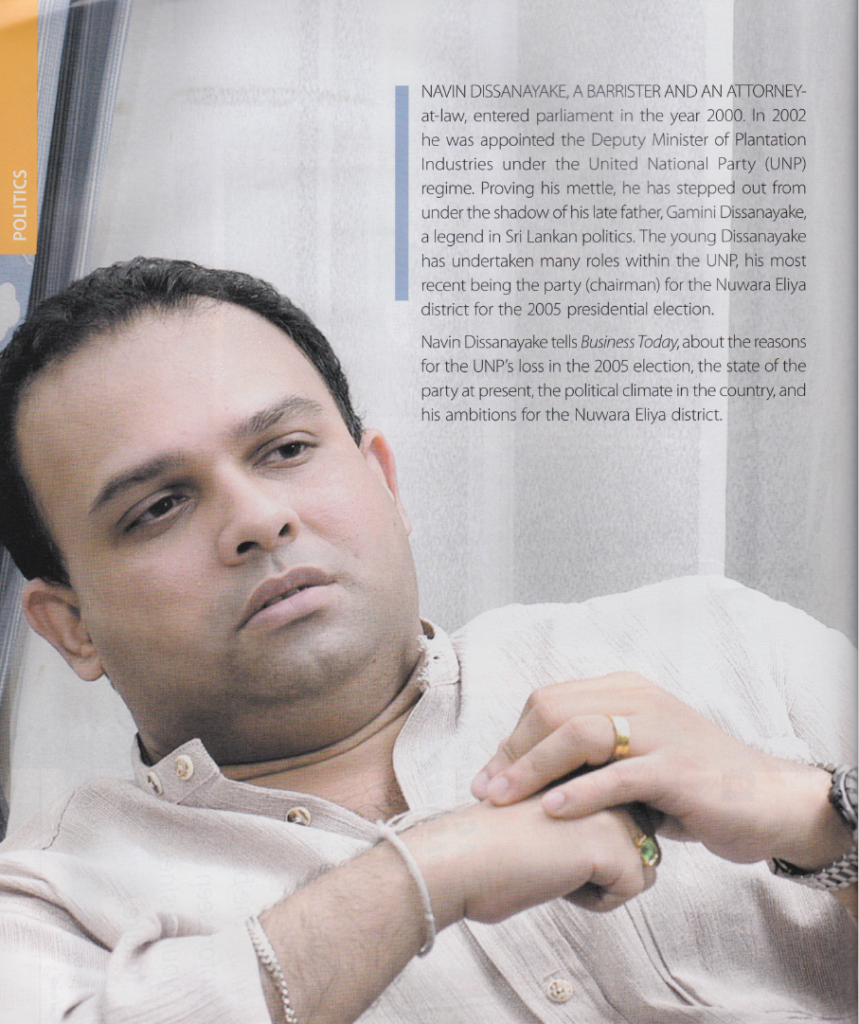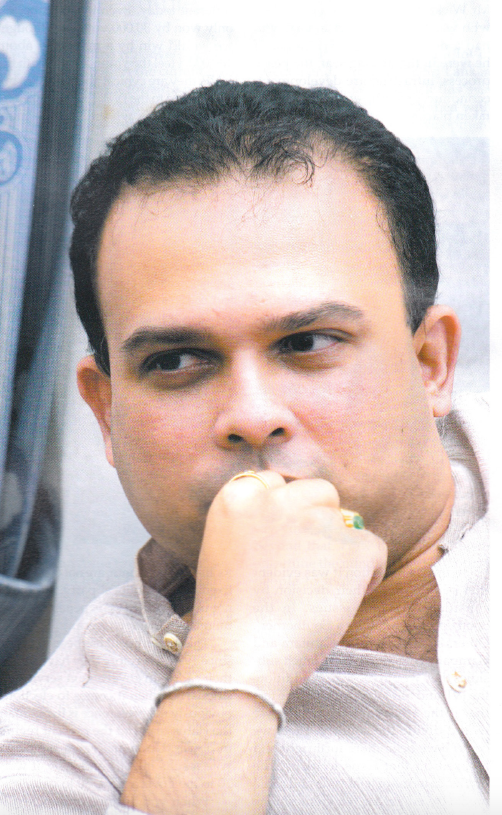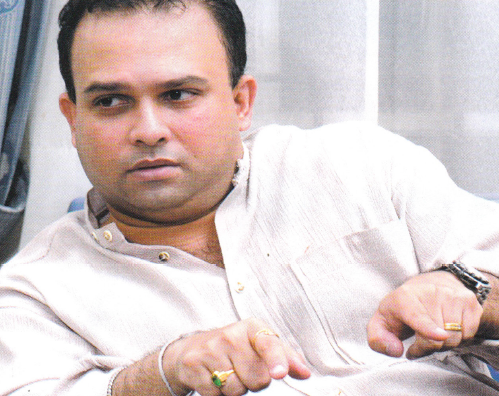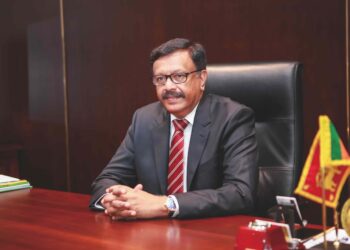By Rashmini Mather

Backtracking to the presidential elections of 2005, why, in your opinion, did the UNP candidate lose?
I think the loss for the party in the 2004 election was significant and we couldn’t resurrect ourselves in a year’s time. In general, as far as the country was concerned, the UNP did many things right. However, politically we did not. For example, many of the UNP cadres sought employment opportunities, which we should have attempted to accommodate, but we did not and this became a key grouse that the people had against the UNP in 2004. Our party cadres were demoralized, they felt they were not looked after and that the UNP wasn’t being proactive. As a result, many traditional UNPers did not vote or voted for the JHU instead.
After such a loss, it takes 2-3 years for a party to recover. Therefore going for a presidential election in 2005, I felt was the wrong strategy. I expressed in various forums that a more effective strategy would be to mark time, go for a general election in 2006, get Ranil Wickremesinghe elected as Prime Minister, and then go for the presidency from that advantageous position. As Prime Minister he would have (had) more leverage, the government machinery would have a better chance at becoming the President.
Conversely, we had the entire state machinery – the JVP, JHU, local administration, Samurdhi networks, etc – against u in the 2005 election. This is a key element in Third World politics. In 1988, President Premadasa came from an unpopular government but he was popular personally as a candidate and the UNP machinery was also very strong; it had the support of the Grama Sevakas and local administration. We couldn’t do any of this; we just went on promises. As far as promises were concerned, the people were disillusioned because they felt they couldn’t believe the UNP’s promises, as we had not delivered in the two years when we were in power.
The JVP supporting Mahinda Rajapaksa was an advantage for him. It was a sure million votes for him whereas we were not certain of the northeast vote and it could not be quantified. In 2001, the JVP received 800,000 votes by contesting alone. Many of my colleagues in the UNP felt their number of supporters had reduced, but I was quite sure that it had increased to about a million, which was evident.
Despite all that, the positive aspect is that the UNP was able to increase our vote base by about 10% to 4.7 million votes in 2005. As a single political party, that was a good result. But in cricket parlance, whether you lose by 10 runs or 100 runs, it doesn’t matter, because at the end of the day, it’s a victory or a loss.
Were your grievances and suggestions not taken into consideration during the presidential election campaigning stage?
After our loss in 2004, there was much debate within the party about our path forward. Certain suggestions, amendments and proposals were brought up by members and they were discussed in depth. Sajith Premadasa suggested that all posts in the party should be elected and I seconded that. However, that concept was never seriously discussed. We felt that there should be more inner party democracy. We observed in 2004 that certain individuals received posts during campaigning but they used these posts to increase their media exposure and build themselves up individually, but they didn’t actually build the party up. For example, it was the responsibility of the people who were allocated the various posts within the UNP to look at the electoral register. In any democratic party, the basic aspect is to check the electoral register and see if all the names are present. There were so many people with so many posts in the UNP but they were not able to do this.
I believe there must be deep fundamental changes in the party. To what extent that is depends on further debate and discussion. Organizationally, I feel the UNP has been weak and I don’t think that we can come to power if we do not look at these issues, not in a haphazard manner or simply to pass time, but with the sincere intention of bringing the party back to power.
What is the state of the UNP at present? Are these issues you mention re organization, etc, being addressed?
I think many UNPers are feeling insecure after such a loss. We have been in opposition from 1994, that is 12 years, and another six years will mean 18 years. People are obviously concerned about their political future. In terms of an individual’s political career, that’s a long time to be out of power. It’s a political axiom that parties cannot sustain themselves by being out of power for long; the maximum is 10 years. The UNP is looking at an IS-year period where the presidency has been denied to us. In this country, the main center of power is the presidency. You can come to parliament but the thrust of executive decisions and policymaking occurs through the presidency.
The strength of the JVP is phenomenal. The UNP is not considering that issue in a determined manner. This situation can be compared to the street politics of the 1930s during Hitler’s time. The JVP’s drive is to do with nationalism, patriotism and to a certain extent, fear psychosis. With the peace process, they have scared the people into certain positions. Our Sri Lankan people, apart from the educated class and intelligentsia, are accustomed to looking at short-term objectives. The UNP talks of a longterm vision and grandiose plans of development, but the people want to know what is happening tomorrow. The JVP’s rise from one seat in 1994 to 39 seats in 2004 is quite remarkable. It shows that the UNP and the SLFP have not been seriously looking at the younger voters. We’re simply relying on our traditional vote banks. But today, the children of UNPers are not voting UNP, they are thinking anew. The UNP is stuck at the 35% margin. To rise from 35% to 50% requires major changes. At the moment, I don’t think the UNP is looking at these issues seriously.
“The main center of power is the presidency. You can come to parliament but the thrust of executive decisions and policy making occurs through the presidency”
Certain sections of the media reported that you had made a statement, which apparently led to the L TTE withdrawing its support of the UNP presidential candidate. Can you clarify this point?
I appreciate you asking me that question because these statements have been attributed to Milinda Moragoda and myself. We both wanted the UNP to win and we would not have done anything to jeopardize that victory.
Firstly, I never made the statement that the Sundaroli newspaper claimed I did. I only said that Mr Wickremesinghe is able to place an international net around the LTTE, which is true and everyone accepts this point. I have now sued this newspaper and the matter is in courts.
Secondly, the LTTE would not make a decision based solely on what Mr Moragoda and I said. They would consider various factors and they would obviously make a decision based on their best interest. The L TTE made the decision to vote against Mr Wickremesinghe or not to exercise the vote for him much earlier, perhaps about a month prior to the statements made by Mr Moragoda and I. (I also think it was not wise to depend entirely on the North-East vote for victory).
There were always suspicions that the L TTE would not vote for Mr Wickremesinghe. They probably felt that Mr Wickremesinghe would be a more formidable and stronger president than President Rajapaksha. To say that they made the decision based on what Mr Moragoda and I said is foolhardy because we’re just two individuals. The L TTE would have looked at far deeper issues.
“In politics you are dealing with a lot of egos, and when those egos are bruised, some drastic decisions do occur”
How do you personally feel about two senior UNP politicians leaving the party to join President Mahinda Rajapaksha ‘s Government?
I would say that anyone who leaves the party is a loss, particularly these two popular figures. Mahinda Samarasinghe was the Chief Opposition Whip and he was very involved in the party machinery. I don’t think Keheliya Rambukwella with his distinct character and personality can be replaced. They have both sacrificed a lot for the party, particularly Mr Rambukwella who suffered greatly during the PA regime. The party leadership has to look at why these key politicians are leaving the UNP.
I think this is evident when people in a political party feel insecure and that their interests are not looked after. Of course it’s also individual ambition. You have to understand that in politics you are dealing with a lot of egos, and when those egos are bruised, some drastic decisions do occur. In Sri Lanka, political crossovers are not new. Under this presidential system, if a President plays his cards right, he can carry on for two terms, that is 12 years, unless there are some exceptional circumstances. This notion must be going through everyone’s minds – what do I do with my life during the ensuing 12-year period?
You have been rather critical about the current state of the UNP. Are more crossovers expected? And what recommendations do you offer to uplift the party?
My criticisms of the party are not personal. I have always been frank about my opinions, sometimes to the detriment of my own career. But I feel that as a young politician and as a person who cares about this country and the UNP, I should speak out and explain my positions. I feel this recent loss is a loss for everybody, not only Mr Wickremesinghe but to everybody in the UNP. You cannot blame Mr Wickremesinghe alone; everyone is collectively responsible, including the deputy leader, the general secretary, the assistant secretary, etc.
Yet in a presidential election, unlike in a general election, people look at the individual who is running for President as well as the policy framework. That is not a Navin Dissanayake theory, it’s a universal fact, be it a presidential election here or in France or the US. In this respect, there is a perception, which I’m not saying I agree with, that Mr Rajapaksha is more of a people’s man and moves with the people to a better extent than Mr Wickremesinghe. On the other hand, Mr Wickremesinghe was a candidate who was viewed as a visionary who had a definite plan for Sri Lanka. If he were in the driving seat, the peace process, infrastructure development, economic growth, etc would have taken place simultaneously.
In the 2005 election it was evident that people made their decision by considering minor issues. In the South, people voted for a ‘Southerner’. Others such as those in Kalutara and Gampaha considered how much subsidies they would receive. In addition, the JVP and SLFP emphasized the fact that if the UNP came to power, we would divide the country. I feel we could have been more forthright and focused on that issue to dispel the myths. In terms of television and radio media coverage, Mr Wickremesinghe was very much on top, but the JVP and SLFP was obviously better than us with respect to house-to-house campaigning, meeting people and explaining issues. After all, we’re not a Western society where people make decisions by watching TV. At the end of the day, the UNP was not sufficiently organized to meet the twin challenge of the JVP and SLFP.
The UNP should understand the political situation in the country. It is traditionally viewed as a bourgeoisie capitalist party. The undercurrents are different today. Even in Colombo, we only won by 30,000 votes; we thought we would win by a margin of about 100,000. I feel the youth are not with the UNP; they are cynical about politics but are turning to the JVP. The huge middle and under class, who are earning about Rs 10-15,000 a month, are not completely fixed on any political party. The manner in which the JVP is penetrating the unions is a major concern.
This government has been in power since 1994. Therefore they have placed their cadres in government service positions. So when it comes to elections, obviously the preference is to maintain the status quo and the present regime in power. Upon analyzing the postal vote results in 2004 and 2005, it went 70 to the government, 30 to us. When you become entrenched in power, it is very difficult to overhaul the system. The only way to counteract the system is to engage in a massive grassroots movement. To undertake such an overhaul after a presidential election loss is difficult. You have to give it time, the cost of living issue will arise again, people will become frustrated, President Rajapaksha may not be able to carry out the necessary reforms, there could be JVP and SLFP clashes, etc. However, when the opportunity arises, one must take it; as in cricket, if a catch comes, we have to be prepared to catch it. We have been getting so many catches during the last 12 years but we haven’t caught it.
Would you like to comment on the UNP presidential election manifesto?
Once you lose an election, you’re always faced with criticisms. Once the Supreme Court decision regarding the presidential election was announced, the parties had only three weeks to raise funds, become organized and get the policy right, which is a limited time frame. Frankly, I think there could have been more discussions about the policy manifesto with the younger groups within the UNP and al o there could have been more professionalism. The manifesto was printed thrice and it had pieces of paper glued into the manifesto. On the other hand, Mr Rajapaksha delayed his policy framework so he had time to study our manifesto as well as give a reply and a more attractive package than us. Yet the UNP had many salient points in our manifesto. We promised Rsl,000-4,000 for every Samurdhi holder. We were going to provide 300,000 jobs. These promises obviously did work because we increased our vote base from the 2004 election but it was insufficient to cross that final hurdle.
Moreover, in my sincere experience in politics, I feel that the party in power has the advantage – about a 10-15% margin – of winning. This is because you are able to utilize the government machinery in your favor.
What are your sentiments on the political situation in the country at present, particularly with regard to the precarious peace process?
I feel it is a positive move that the negotiations are recommencing in Geneva. What I or the Colombo-based politicians or the South feels is not what is relevant here. You have to understand the mentality of the LTTE. The LTTE may also realize that it is futile to go for a war situation. Prabhakaran is 52 years old. If there’s going to be a settlement, it has to be within the next 5-6,years. If war breaks out, it means another 10 years of fighting. It is very unlikely that President Rajapaksha would compromise in terms of military options if war breaks out.
The involvement of the international players, particularly the US, Norway and Japan, have emphasized to the LTTE that there has to be a political solution has placed a lot of pressure on the L TTE. The message was clear with the arrival of Erik Solheim and Nicholas Burns, and particularly with the statement by His Exellency Jeffrey Lunstead that if you start the war again, we’re going to help the Sri Lankan Government militarily and otherwise.
Now the two main issues are the Karuna factor; how the government is going to deal with that issue because the LTTE is adamant that the Sri Lankan Government is supporting Karuna. Secondly, the high security zones in Jaffna. In terms of the ISGA, I don’t know how the LTTE and the government are going to play that.
As a result of the crossovers, will the UNP now not support the current government in its efforts toward a peaceful resolution, thereby furthering partisan politics in the country?
The UNP position has been elucidated, that the party will support the peace process. In my personal view, it is the national duty of the party to support the peace process. This might be the last chance the country has for everlasting peace and to get the country moving again. Therefore I think it’s critical that we support the consensus. Since 1994 we were not able to do that. During the next six years we will have to come to some sort of settlement within the South, and then we will have to bargain with the LTTE.
I strongly believe that the petty politics that have divided this country for so long should be forgotten and we must all get together. We are just small players in all this. Individually we all have agendas but there has to be a collective agenda for the future. A Southern consensus is vital for the L TTE as well.
If we can come to a permanent settlement with the LTTE, the sky is the limit for this country, which can become a model for Southeast Asia. We have all the necessary pieces in place, such as education, health sector, etc, we only have to fine tune them.
Now we have a different paradigm altogether. We have a win-win and lose-lose situation. Win-win if we can strike this deal with the L TTE, lose-lose if we cannot. In Sri Lanka we have become accustomed to this model of power politics where everything depends on a victory or loss. But it doesn’t have to be like that. This political divide has created a lot of fraction and hatred in the Sri Lankan psyche. We have to unlock this system, and that will only happen with economic benefits and development as well as employment opportunities so that there is cash flowing into the villages and infrastructure development. Another aspect is that we have not yet recovered from the tsunami. Reconstruction and rehabilitation in many areas of the south, north and east has to take place. We have not been able to send funds into the north so no wonder the L TIE has a grouse with the government.
Whatever the Sinhala people may say, I think the northern and eastern Tamil people have some kind of bonding to the LTTE. No matter how much you hate the L TIE, you have to accept that because they have the machinery there, they have sacrificed considerably, they have killed many Tamil and Sinhala people, but when it comes to the nitty-gritty, the LTTE has an iron fist particularly in the north. People say you have to fight them, but it’s beyond that. How the political leaders attune the minds of the Sri Lankan people to look at this conflict in a new way is real political leadership. Whether President Rajapakse has the courage to do that, I do not know.
Do you have any concerns about the actions or policies undertaken by the present government?
This is basically President Rajapaksha ‘s honeymoon period. It is generally the case whereby when anyone or any government is elected to office, during the first six months, people do not criticize but think everything is going well. It is only after six months that a true assessment can be made as to where the country is heading.
If the country does not return to war, things will be fine. Some sections of the U P and Colombo society think that the SLFP and the JVP will divide but I don’t believe that. I think the JVP will at times raise their voice on certain issues, corruption for example, which is a positive aspect. But they will want President Rajapaksha to continue for the next six years. President Rajapaksha also has the numbers in parliament so he doesn’t have to dissolve it. Thus the next general election will be in 2009. We hear that the minority parties, except the TNA, might also help President Rajapaksha. If President Rajapaksha ‘s numbers are secure in parliament he can go on, unless of course there is a huge debacle in the country like an economic collapse. But this is unlikely because, under the present economic system, this part of the region will reach a growth rate of at least 4-5% per annum. If there is a higher growth rate, like 7-8%, then the positive effects will trickle down to the masses and rural populations. For that, President Rajapaksha will have to undertake many economic reforms, a privatization agenda, raise more revenue, overhaul institutions like the state banks and petroleum corporation, make reforms in electricity distribution, etc, but I’m not sure if the JVP will allow him to make these key amendments. If peace holds, President Rajapaksha will be able to access funds and go ahead with the development and infrastructure works, which is positive. If he can concentrate on a few urgent areas – law and order, good governance and infrastructure development – this might be the success or failure of his presidency.
What are your political aspirations and your development plans for your electorate, which is Nuwara Eliya?
I have a lot of plans for my constituency Nuwara Eli ya. I am in the process of developing the district. I am currently obtaining donor funding through the Sri Lankan Government to construct a new hospital in the near future. I’m very secure in my district. I can win it even if there is an election tomorrow. I operate in a different manner – I do not go there everyday, nor do I attend every funeral or matrimonial houses, but I have a network established there and I’m very sure of my vote.
Honestly, I don’t believe in longterm plans for my political career. As in cricket parlance, you must bat according to how each ball is bowled. From the age of 32 to 44, Mahinda Rajapaksha was nowhere and a nobody in politics in Sri Lanka. I don’t think even four years ago anybody seriously considered that he would be President. Even President Premadasa lost his seat to NM Perera when he contested for the first time in 1956. He then contested again in 1960 and came up the political ladder. You have to go through this process in politics; where you will end up nobody knows.







